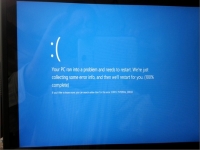Google has made its app translation service available to all Android developers to enable them to offer their apps in different languages.
The service, first previewed in May at Google I/O, allows developers to purchase professional app translations through the Google Play Developer Console from third-party service providers at prices ranging on an average from US$75 for a small app to $150 for a large app per language.
Google ran a pilot service of the program before making it generally available. It is part of a toolbox offered by Google to developers so that they can distribute their apps around the world through its Google Play store.
The Internet giant claims that every day more than 1.5 million new Android phones and tablets around the world are turned on for the first time. "Each newly activated Android device is an opportunity for you as a developer to gain a new user, but frequently, that user speaks a different language from you," it said in a blog post Monday on its Android Developers Blog.
During the pilot, one of the participants RV AppStudios, the developer of a game called Zombie Ragdoll, used the tool to launch its new game simultaneously in 20 languages in August, according to Google. As a result of combining app translation with local marketing campaigns, it found that 80 percent of its installs "came from non-English-language users."
Google, which has its own automated Google Translate service, recommends to app developers professional translations rather than automated translations that "are less reliable than high-quality professional translations and may not produce as good an experience" for users. Translations purchased on Google's app translation service are described by Google as a direct business agreement between developers and the vendor. "You'll need to work directly with the vendor to manage the translation process and deliverables and resolve any support issues," it said.
Developers have to get their Android application package file (APK) ready for translation, including ensuring that the strings.xml file "is well organized, well commented, and accurate," and select the languages to target for translation. The app translation service figures in the Developer Console at the bottom of the APK section


